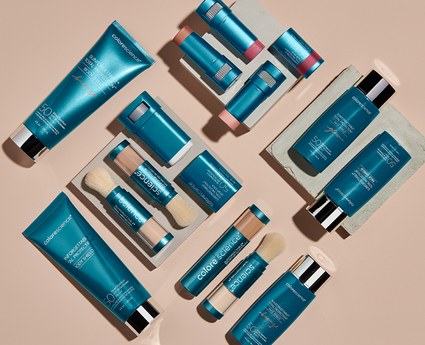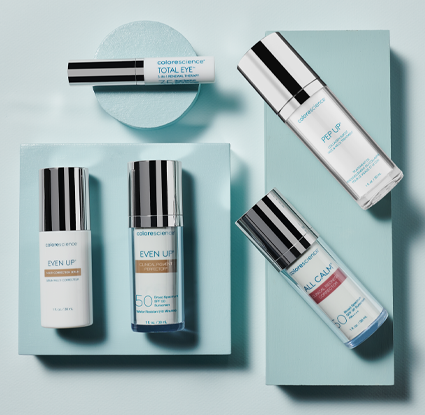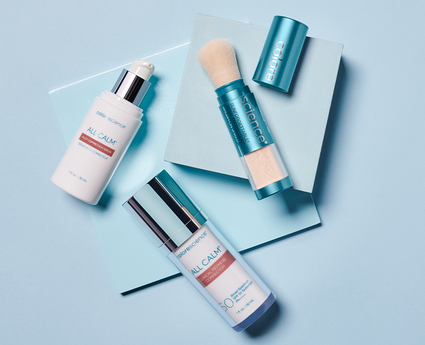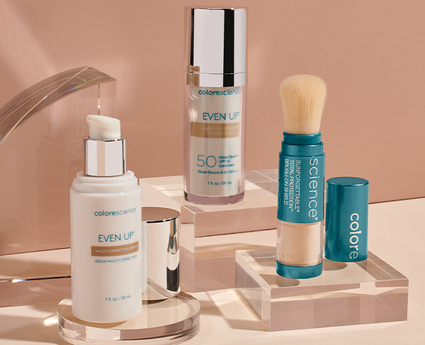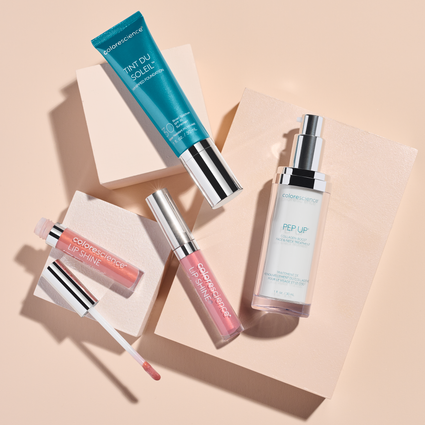Winter Skincare Tips: How to Avoid Winter Skin Conditions

Protect Your Skin with These Winter Skincare Tips
Winter is here, and with it comes dipping temperatures, snowfall, and holiday revelry. Unfortunately, the winter season also brings with it a host of skin ailments. From chapped lips to Keratosis Pilaris, dandruff to rosacea, cold weather isn’t always kind to our skin – but there are ways to prevent the itching, scratching, redness of winter’s most common skin ailments.
We’ve put together a list of fool-proof winter skincare tips designed to keep your complexion soft and supple all year long.
First, let’s take a look at 5 common winter skin conditions.
Common Winter Skin Conditions

Dry Skin
Your skin gets drier in the winter for a few different reasons. As humidity levels drop, the atmosphere becomes drier. This means any time spent outdoors can deplete your skin of its moisture. Your heater might also be the cause behind your dry skin; hot, forced air can leave your body feeling parched. Finally, if you’re dealing with dry skin, reconsider your shower habits. Taking hot showers repeatedly can quickly pull the moisture from your skin.
Keratosis Pilaris
During the winter, you might notice small bumps appear on the skin that may resemble goosebumps or small pimples. These little bumps feel rough, almost like sandpaper, and may be flesh-colored, white, red, pinkish, or brownish. They can appear almost anywhere on your body, except for the palms of your hands and soles of your feet.
Keratosis Pilaris is actually the result of dead skin cells; when these cells don’t properly slough off the skin’s surface, or build up too quickly, they can plug up your pores. If your skin is dry, your Keratosis Pilaris may be easier to spot.
Chapped Lips
Sensitive lips can become chapped at any time of the year, but lip inflammation is much more likely to occur during the cold winter months. Your lips don’t have any sebaceous glands, unlike the skin on the rest of your body. Sebaceous glands are tasked with producing sebum, an oily substance that keeps your skin moisturized and supple. Because your lips don’t have that added moisture, they are forced to face the elements on their own – unless you provide them with a little more support. Severe chapping can cause your lips to flake, crack, and split open. If you let your lips get overly chapped, they may even bleed.
Rosacea
Rosacea is a common skin condition that affects over 16 million Americans. Rosacea is characterized by redness on the face - particularly on the nose, chin, cheeks, and neck - acne breakouts, skin thickening, and eye irritation. Over time, if left untreated, visible blood vessels may appear.
While this is a chronic skin disorder that occurs mostly amongst those 30 and older, winter weather can cause flare-ups. There’s no known cure for this skin disorder, but there are plenty of ways to manage its symptoms, especially for those that deal with worsened rosacea during the winter.
Dandruff
For most people, dandruff is characterized by flaky, white pieces of skin that sloughs off the scalp, making its way to hair and shoulders. While harmless, dandruff can be embarrassing and frustratingly difficult to get rid of.
Contrary to popular belief, dandruff has nothing to do with your hygiene practices; it’s simply a matter of skin cell overproduction. While there’s no one root cause for this overproduction, those that struggle with dandruff produce skin cells too quickly for the body to slough off naturally. This results in excess skin that must make its way off your scalp to clear room for new skin cells to grow. Winter weather can trigger dandruff amongst those who normally don’t deal with this skin condition, and it can make dandruff worse for those that already do.
Winter Skincare Tips
With so many skin ailments to guard against during these winter months, it’s important to create a healthy skin care regimen. Let’s go over the ways you can fight against some of winter’s most common skin conditions.
How to Treat Dry Skin

During the winter months, your skin needs all the moisture it can get. There are plenty of ways to protect your skin from the elements, and practicing the following can help you keep your skin supple all season long. Dry skin be gone!
- Use oil-based moisturizer: During the winter months, low humidity levels can steal the moisture right off of your skin. To replace what’s been lost to the elements, opt for an oil-based moisturizer. Oils are better able to adhere to your skin, providing longer-lasting moisture that can benefit you all day long. Look for non-comedogenic oil moisturizers, as these won’t clog up your pores.
- Watch your shower habits: When it’s chilly outside, it’s tempting to hop in the shower and turn the water up to the highest temperature possible. Avoid giving into this temptation, and instead opt for lukewarm showers. Hot water washes away your skin’s natural oils, leaving your body and face dry and irritated. Also be sure to keep your showers short; the longer you stand under that running water, the more apt your skin is to dry out.
- Blot your skin: When you’re drying off from a shower or after washing your face, be sure to blot your skin gently with a towel—don’t rub it! Rubbing a towel against your skin can cause friction that strips away your skin’s essential oils. Gently pat your skin dry instead and avoid tugging whenever possible.
How to Treat KP

If your dermatologist or doctor has diagnosed you with Keratosis Pilaris, don’t be concerned. This common skin condition is harmless; however, if the itching or sight of these small chicken bumps bothers you, there are a few treatment options available.
- Use a topical exfoliant: Because Keratosis Pilaris is the result of a buildup of dead skin cells, exfoliation can help reduce its appearance. Use a topical exfoliant to rid your pores of these dead skin cells and leave your hair follicles clean and clear. Topical exfoliants may include ingredients such as salicylic acid, urea, or lactic acid. Be careful to avoid overuse, as these ingredients can be harsh and cause redness and irritation in those with sensitive skin.
- Use a topical retinoid: Don’t wait for Keratosis Pilaris to form; topical retinoids are designed to prevent hair follicles from becoming plugged in the first place. Topical retinoids may include Tazarotene and Tretinoin.
- Ask your dermatologist for steroid medications: In certain cases, your doctor may prescribe a regimen of emollient-based topical steroid cream designed to clear inflammation. This course of treatment usually lasts no longer than 7 to 10 days.
How to Treat Chapped Lips

If your lips are chapped and cracking in this dry winter wind, it’s time to take action. Healing chapped lips is all about self-care. Use the following tips to keep your pout plump all winter long.
- Lip balm is your new best friend: Use lip balm regularly to soothe the sensitive skin on your lips, and look for balms that include petroleum jelly, as this effective ingredient is designed to lock in moisture. It’s also a good idea to find lip balms made with dimethicone, which is capable of sealing off the cracks and splits in your dry pout.
- Stay hydrated: Drinking water helps keep your body hydrated from the inside out. Sipping on water helps maintain the moisture barrier on your lips, and may help prevent you from licking your lips to soothe against the bite of dry air—which only proves to make your lips more chapped.
How to Treat Rosacea

There are many treatment options for rosacea, and watching your cleansing habits in the winter months can help keep any flushing, swelling, and irritation to a minimum—even in the coldest of climates. If you’re looking for ways to manage a mild case of rosacea, use these winter skin care tips:
- Use a gentle cleanser: Those with rosacea typically have sensitive skin, and it’s important to use a gentle daily cleanser that clears your skin of excess oils and debris, without causing dryness or irritation.
- Apply cleanser with your hands: Rubbing a wet washcloth across your face can be too abrasive, especially if you have sensitive skin. Instead, apply cleanser with clean hands and rinse clean with lukewarm or cool water, as hot water can increase redness and irritation.
- Don’t use toners and astringents: After cleansing your face, skip the toners and astringents. Both often contain alcohol, which can serve as a drying agent.
- Avoid harsh ingredients: People with rosacea should avoid all harsh ingredients, including salicylic acid, glycolic acid, and benzoyl peroxide. These have the potential to irritate already-sensitive skin, and can increase inflammation and redness.
How to Treat Dandruff

Dandruff is relatively easy to control, so long as you use the right products and follow the right steps.
- Use dandruff shampoo: The most important thing to do is invest in the right dandruff shampoo. There are plenty of brands offering a variety of dandruff products, which may include any of the following ingredients:
- Pyrithione Zinc: This is an antifungal agent that may decrease the amount of fungus on your scalp, which can reduce dandruff and seborrheic dermatitis.
- Selenium Sulfide: This ingredient can slow how quickly the skin cells on your scalp die, resulting in less dandruff.
- Tar: Coal tar can slow down the rate at which skin cells die and slough off, meaning less flakes.
Remember that not all dandruff shampoos are the same, so it may take a bit of trial and error before you find the right product for your skin.
- Wash your hair daily: If you don’t wash your hair every day, it may be time to reconsider your winter showering routine. As dandruff worsens during the winter months, cleansing daily can reduce oiliness and rid your scalp of skin cell buildup.
Winter Skincare Myths

As the seasons change, it’s important to overhaul your skin care routine. However, as you change up your skin care habits, be on the lookout for false information. There are plenty of pervasive winter skincare myths that continue to lead us astray in cool weather, including the following:
- You can forgo sunscreen in the winter: Wear sunscreen all year long. Period. The sun’s UV rays can damage your skin whether it’s a 90-degree summer’s day or the dead of winter.
- Dandruff is the result of dryness: Dry skin can cause irritation in the winter months, but dandruff is not a direct result of dryness. If your scalp is oily, a harmless yeast will form that causes flaking.
- Those with oily skin shouldn’t use moisturizer: Everyone can benefit from moisturizer. The trick is finding the right one. If you have oily skin, be sure to use a gentle cleanser and a light moisturizer to keep your face soft and supple.
- Thicker moisturizing creams provide better hydration: The thickness has nothing to do with the moisturizer’s efficiency. For some people, a thick moisturizing cream can actually make the skin look worse, trapping dead skin cells and leaving you with a dull complexion.
Winter weather shouldn’t wreak havoc on your skin, and with these winter skin care tips, it doesn’t have to. Reduce chapping, redness, and irritation and enjoy healthy, radiant skin all year long.


